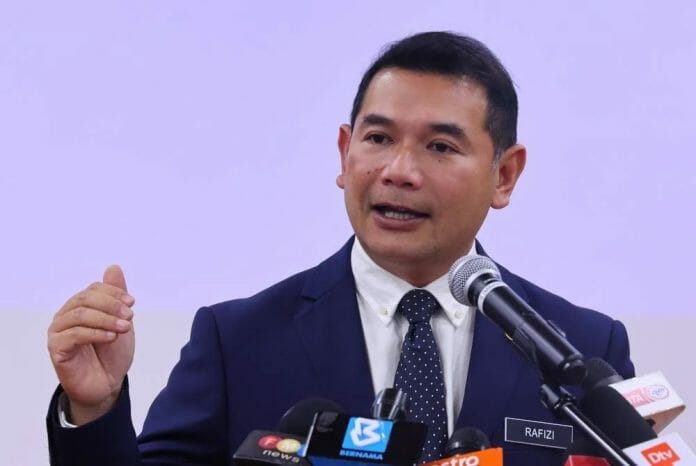Economy Minister Rafizi Ramli rests assured that Malaysian businesses will be more receptive to the progressive wage model (PWM) policy papers that will be presented to the National Economic Action Council on Aug 7.
He said a ‘middle point’ has been achieved between the government and private sector employers that is a win-win which is expected to greatly address the issue of slow wage growth in Malaysia.
“We have harmonised the various agencies’ views on how we can do this. What we will be presenting next Monday is a halfway meeting which can be successfully implemented and practised in this country.
“It’s a middle path that requires commitment from the government and employers. We are hopeful that it will get the support from employers as well,” he said at a press conference after officiating the launch of Statistics on Wages for the first quarter of this year (1Q2023) in Kuala Lumpur today (Aug 4).
He added that PWM, with its unique solution, will also quell employers’ concerns that an increase in salary would result in higher operating cost for business. Rafizi urged the government to consider setting aside a special allocation intended for wage increases of private sector employees.
“The government has only raised the wages of public sector workers so far. But the private sector never got anything because there were no progressive policies in place to support wage growth. But this will need government’s approval and yearly allocation,” he said.
On the PWM being compared to the minimum wage policy which was said to be within a depressed wage growth in the country, Rafizi added minimum wage policy has its limitations.
“The minimum wage behaves differently in different economies. In our economy, it had a series of unintended consequences, and the biggest of all is that it actually dragged down skilled workers’ salaries. When we set the minimum wage at RM1,500, it became the reference salary even for a skilled worker, whereas this policy was only meant for unskilled workers. This old policy will not solve the problem. In fact, it distorts everyone else’s pay,” he said.
Rafizi said therefore a policy intervention via PWM is important in that it reflects the skill and education level of a worker and will address the weakness of the minimum wage policy.
PWM is jointly developed by the Economy Ministry, Finance Ministry, Investment, Trade and Industry Ministry, and Human Resources Ministry, and would be a transition from the minimum wage model to phased salary increments that would be in line with the growth of the national economy.
‘Minimum Wage As Benchmark For Starting Pay Of Fresh Grads’
Rafizi stressed the need for a policy that ensures the minimum wage is not used as the starting pay for skilled workers.
He noted that the minimum wage of RM1,500 was set as a benchmark for unskilled workers which should lead to higher pay for fresh graduates and young professionals.
“However, statistics showed that the wages for skilled workers are being dragged down because minimum wage has been used as a guidance for fresh graduates and skilled workers.
“This is a phenomenon that requires an immediate policy so that we can rectify the problem,” he told a press conference after the launch of Employee Wages Statistics (Formal Sector) Report for the first quarter of 2023 by the Statistics Department today (Aug 4).
The report revealed that the median wages for March 2023 stood at RM2,600, up 8.3 per cent from the same month last year.
The poverty line income (PGK) for 2022 stood at RM2,589 while the living wage as at 2017 was RM3,047. PGK is determined by average household income.
Rafizi said Malaysia had been faced with salary issues whereby the median wage had not increased in tandem with cost of living and remained at a low percentile.
“Why are we only talking about this now? It’s because we need to gather accurate data and we are confident with the diagnosis which showed that we do have a wage problem,” he added.
Meanwhile, Rafizi said the progressive wage model, which will be presented to the National Economic Action Council (NEAC) on Monday, had received positive feedback from the major stakeholder namely employers.
He noted the employers require commitment from the government to set aside amount for yearly increment for both the private and public sector.
“I need to convince the government that it needs an allocation every year for salary increment for both sectors because previously if the matter revolves around salary, it only touches on the public sector.
“The private sector would not get any increment due to the lack of a progressive policy. This policy will include the private sector but we just need an agreement with the government to set aside an amount and how much it can allocate for a yearly increment,” he said.
Rafizi had previously said the model will be jointly developed by the Economy Ministry, the Finance Ministry, the Investment, Trade and Industry Ministry and the Human Resources Ministry.









